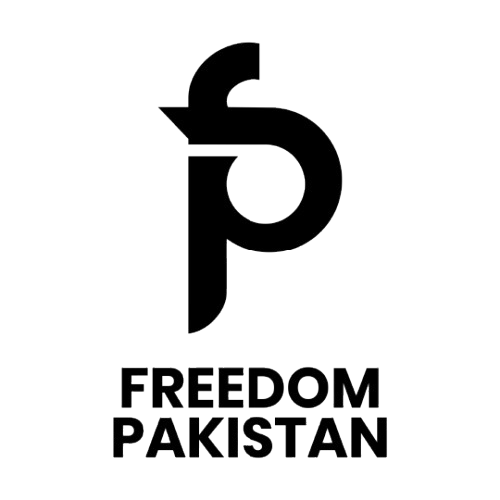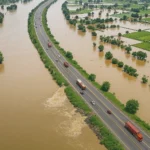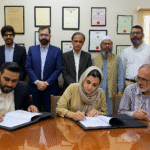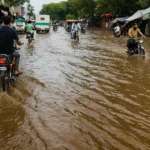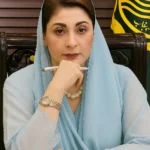Top Opposition Leaders, Including Kundi, Muqam, Khattak, Hold Crucial Talks on PTI-led Government’s Future in Khyber Pakhtunkhwa
By Waqar Satti | July 14, 2025
Khyber Pakhtunkhwa (KP) is once again witnessing significant political maneuvering as opposition leaders intensify their efforts to challenge the Pakistan Tehreek-e-Insaf (PTI) government in the province. Sources close to the political developments have revealed that key figures including Governor KP Faisal Karim Kundi, Federal Minister for Kashmir Affairs and Gilgit-Baltistan Amir Muqam, and Prime Minister’s Adviser on Interior Affairs Pervez Khattak have been engaged in a series of informal yet strategic meetings aimed at exploring avenues to destabilize and possibly replace the PTI administration in KP.
Political Landscape in KP: A Precarious Balance of Power
Khyber Pakhtunkhwa has long been a political battleground, with PTI historically enjoying significant popularity, particularly under the leadership of Imran Khan. However, recent political upheavals and judicial interventions have altered the dynamics considerably. The June 27 verdict by the Supreme Court of Pakistan, which disqualified PTI from holding reserved seats, has substantially weakened the party’s legislative strength in the provincial assembly. As a result, the opposition alliance in KP is reportedly just 20 members shy of a simple majority, positioning them tantalizingly close to seizing power.
The current PTI-led government, which came into power with a clear majority, now faces serious challenges from a united opposition front. The political atmosphere in KP is charged with anticipation, as developments unfold that could reshape the province’s governance and political alignment.
Informal but Intense Dialogues Among Opposition Leaders
The opposition’s strategy appears to be meticulously planned and discreet. Meetings held in informal settings—one notably at Pervez Khattak’s residence, where political leaders had gathered on the occasion of his sister’s death—have served as crucial forums for dialogue and negotiation. Such informal gatherings have often historically provided an effective environment for candid discussions away from the public eye and media scrutiny.
Governor Faisal Karim Kundi, who has a long history of political involvement in KP, has played a pivotal role as a mediator and strategist in these discussions. Kundi’s political experience and standing in the province make him a vital figure capable of bridging divides among disparate opposition groups.
Similarly, Amir Muqam, with his federal-level influence and deep roots in KP politics, has been instrumental in coordinating opposition efforts. His position as Federal Minister for Kashmir Affairs and Gilgit-Baltistan lends him a unique vantage point to leverage federal political resources and alliances.
Pervez Khattak, a former Chief Minister of KP and a key PTI figure turned opposition strategist, is also central to the talks. Khattak’s involvement signals an important internal fissure within PTI ranks, highlighting dissent that the opposition hopes to capitalize on.
Inclusion of Religious and Regional Leaders
Adding a critical dimension to these talks is the reported participation of Maulana Fazlur Rehman, chief of Jamiat Ulema-e-Islam-Fazl (JUI-F), one of the country’s most influential religious-political leaders. Known for his ability to mobilize large vote banks, especially in KP and adjoining regions, Fazlur Rehman’s presence underscores the importance of consolidating a broad coalition that crosses ideological and ethnic lines.
Though JUI-F is not traditionally aligned with the secular-leaning PTI, Fazlur Rehman has historically been a kingmaker in coalition politics. His cautious yet strategic approach reflects an understanding that any major political shift in KP must be carefully managed to avoid instability.
At a press conference held in Peshawar on Friday, Maulana Fazlur Rehman emphasized the need for change originating within PTI itself. He remarked, “I’ve made my suggestion — there should be a change in the province.” However, he also stressed that his party would deliberate internally before deciding its final course of action, underscoring the sensitivity and complexity surrounding the potential ouster of the government.
The Stakes: Political Stability Versus Change
Political analysts suggest that the opposition’s drive to topple the PTI government stems not only from electoral rivalry but also from growing concerns over governance and administrative performance in KP. Issues such as economic management, law and order, and social development remain contentious topics, with opposition parties accusing PTI of failing to deliver on its promises.
On the other hand, PTI supporters argue that the party’s setbacks are largely engineered through judicial activism and political conspiracies, a narrative that continues to resonate strongly with a significant section of KP’s electorate.
The opposition’s planned huddle at the Governor House, where provincial lawmakers are expected to devise a coordinated strategy, marks a critical juncture. The timing and outcome of this meeting could define the political future of KP for years to come.
Senate Elections: Opposition Eyes a United Front
Another major development on the political horizon is the upcoming Senate elections. Opposition leaders across KP have reportedly agreed in principle to contest the elections as a united front. This unity is a significant departure from past fragmented attempts that often allowed PTI to maintain its dominance.
Maulana Fazlur Rehman has been cautious about commenting on potential adjustments regarding the Senate polls, stating it was premature to offer remarks. Nonetheless, the move to present a cohesive opposition front could strengthen their bargaining power and potentially influence the federal political balance.
Given the Senate’s role in shaping national legislation and government formation, success in these elections would be a substantial gain for the opposition. It would enable them to leverage their influence beyond KP and challenge PTI at the federal level.
Historical Context: Power Struggles in KP
KP’s political history has been marked by frequent changes in power and shifting alliances. The province’s strategic location and diverse demographic composition have often translated into complex political contests.
The rise of PTI under Imran Khan in the 2010s marked a significant shift in KP politics, breaking the traditional dominance of parties like the Pakistan Muslim League-Nawaz (PML-N) and the Awami National Party (ANP). PTI’s promises of reform and anti-corruption resonated deeply with the province’s youth and urban middle class.
However, governance challenges, coupled with internal party disagreements, have periodically weakened PTI’s hold on the province. The current political upheaval can be seen as part of this cyclical pattern of contestation and realignment.
Legal and Judicial Influences on Political Dynamics
The Supreme Court’s verdict on June 27, which disqualified PTI from holding reserved seats, represents a critical legal intervention influencing political calculations in KP. This decision has shifted the legislative arithmetic in favor of the opposition, emboldening their efforts to challenge PTI’s majority.
The judiciary’s role in political affairs, however, remains contentious and widely debated across Pakistan. While supporters view such interventions as necessary checks on political excesses, critics warn of undermining democratic mandates.
In KP, where the political contest is tightly contested, the legal framework’s impact is especially pronounced, contributing to heightened uncertainty about the province’s political future.
What’s Next for KP’s Political Future?
As the opposition nears a simple majority threshold, the coming weeks will be critical. The planned huddle at the Governor House could lead to a formal vote of no confidence or trigger other political maneuvers aimed at unseating the PTI government.
The potential consequences of such a shift include:
-
Change in Provincial Leadership: A new coalition government could emerge, altering KP’s policy priorities and administrative focus.
-
Impact on Federal Politics: KP’s political alignment could influence federal power equations, especially with the upcoming Senate elections.
-
Public Response: KP’s electorate, known for its political engagement, will closely watch these developments, potentially influencing future elections.
Meanwhile, PTI faces the challenge of consolidating its ranks and rallying public support to resist the opposition’s push. The party’s internal cohesion, leadership decisions, and ability to deliver on governance will be key determinants of its resilience.
Conclusion
Khyber Pakhtunkhwa stands at a crossroads, with its political future hanging in the balance amid intense opposition efforts to dismantle the PTI government. The involvement of top opposition leaders like Faisal Karim Kundi, Amir Muqam, Pervez Khattak, and Maulana Fazlur Rehman signals a well-coordinated push for change that transcends traditional party lines.
The next phase will test the resolve of all political actors in KP, with implications that could reverberate beyond provincial borders. Whether through dialogue, political realignment, or electoral contests, KP’s political landscape is poised for significant transformation.
As this political drama unfolds, citizens and observers alike will remain attentive to the outcomes that will shape governance, stability, and democracy in one of Pakistan’s most strategically important provinces.
______________________________________________________________________
Rifts crop up in PTI over timeline of protest movement
Raed This Article
______________________________________________________________________
Top Opposition Leaders, Including Kundi, Muqam, Khattak, Hold Crucial Talks on PTI-led Government’s Future in Khyber Pakhtunkhwa
By Waqar Satti | July 14, 2025
Khyber Pakhtunkhwa (KP) is once again witnessing significant political maneuvering as opposition leaders intensify their efforts to challenge the Pakistan Tehreek-e-Insaf (PTI) government in the province. Sources close to the political developments have revealed that key figures including Governor KP Faisal Karim Kundi, Federal Minister for Kashmir Affairs and Gilgit-Baltistan Amir Muqam, and Prime Minister’s Adviser on Interior Affairs Pervez Khattak have been engaged in a series of informal yet strategic meetings aimed at exploring avenues to destabilize and possibly replace the PTI administration in KP.
Political Landscape in KP: A Precarious Balance of Power
Khyber Pakhtunkhwa has long been a political battleground, with PTI historically enjoying significant popularity, particularly under the leadership of Imran Khan. However, recent political upheavals and judicial interventions have altered the dynamics considerably. The June 27 verdict by the Supreme Court of Pakistan, which disqualified PTI from holding reserved seats, has substantially weakened the party’s legislative strength in the provincial assembly. As a result, the opposition alliance in KP is reportedly just 20 members shy of a simple majority, positioning them tantalizingly close to seizing power.
The current PTI-led government, which came into power with a clear majority, now faces serious challenges from a united opposition front. The political atmosphere in KP is charged with anticipation, as developments unfold that could reshape the province’s governance and political alignment.
Informal but Intense Dialogues Among Opposition Leaders
The opposition’s strategy appears to be meticulously planned and discreet. Meetings held in informal settings—one notably at Pervez Khattak’s residence, where political leaders had gathered on the occasion of his sister’s death—have served as crucial forums for dialogue and negotiation. Such informal gatherings have often historically provided an effective environment for candid discussions away from the public eye and media scrutiny.
Governor Faisal Karim Kundi, who has a long history of political involvement in KP, has played a pivotal role as a mediator and strategist in these discussions. Kundi’s political experience and standing in the province make him a vital figure capable of bridging divides among disparate opposition groups.
Similarly, Amir Muqam, with his federal-level influence and deep roots in KP politics, has been instrumental in coordinating opposition efforts. His position as Federal Minister for Kashmir Affairs and Gilgit-Baltistan lends him a unique vantage point to leverage federal political resources and alliances.
Pervez Khattak, a former Chief Minister of KP and a key PTI figure turned opposition strategist, is also central to the talks. Khattak’s involvement signals an important internal fissure within PTI ranks, highlighting dissent that the opposition hopes to capitalize on.
Inclusion of Religious and Regional Leaders
Adding a critical dimension to these talks is the reported participation of Maulana Fazlur Rehman, chief of Jamiat Ulema-e-Islam-Fazl (JUI-F), one of the country’s most influential religious-political leaders. Known for his ability to mobilize large vote banks, especially in KP and adjoining regions, Fazlur Rehman’s presence underscores the importance of consolidating a broad coalition that crosses ideological and ethnic lines.
Though JUI-F is not traditionally aligned with the secular-leaning PTI, Fazlur Rehman has historically been a kingmaker in coalition politics. His cautious yet strategic approach reflects an understanding that any major political shift in KP must be carefully managed to avoid instability.
At a press conference held in Peshawar on Friday, Maulana Fazlur Rehman emphasized the need for change originating within PTI itself. He remarked, “I’ve made my suggestion — there should be a change in the province.” However, he also stressed that his party would deliberate internally before deciding its final course of action, underscoring the sensitivity and complexity surrounding the potential ouster of the government.
The Stakes: Political Stability Versus Change
Political analysts suggest that the opposition’s drive to topple the PTI government stems not only from electoral rivalry but also from growing concerns over governance and administrative performance in KP. Issues such as economic management, law and order, and social development remain contentious topics, with opposition parties accusing PTI of failing to deliver on its promises.
On the other hand, PTI supporters argue that the party’s setbacks are largely engineered through judicial activism and political conspiracies, a narrative that continues to resonate strongly with a significant section of KP’s electorate.
The opposition’s planned huddle at the Governor House, where provincial lawmakers are expected to devise a coordinated strategy, marks a critical juncture. The timing and outcome of this meeting could define the political future of KP for years to come.
Senate Elections: Opposition Eyes a United Front
Another major development on the political horizon is the upcoming Senate elections. Opposition leaders across KP have reportedly agreed in principle to contest the elections as a united front. This unity is a significant departure from past fragmented attempts that often allowed PTI to maintain its dominance.
Maulana Fazlur Rehman has been cautious about commenting on potential adjustments regarding the Senate polls, stating it was premature to offer remarks. Nonetheless, the move to present a cohesive opposition front could strengthen their bargaining power and potentially influence the federal political balance.
Given the Senate’s role in shaping national legislation and government formation, success in these elections would be a substantial gain for the opposition. It would enable them to leverage their influence beyond KP and challenge PTI at the federal level.
Historical Context: Power Struggles in KP
KP’s political history has been marked by frequent changes in power and shifting alliances. The province’s strategic location and diverse demographic composition have often translated into complex political contests.
The rise of PTI under Imran Khan in the 2010s marked a significant shift in KP politics, breaking the traditional dominance of parties like the Pakistan Muslim League-Nawaz (PML-N) and the Awami National Party (ANP). PTI’s promises of reform and anti-corruption resonated deeply with the province’s youth and urban middle class.
However, governance challenges, coupled with internal party disagreements, have periodically weakened PTI’s hold on the province. The current political upheaval can be seen as part of this cyclical pattern of contestation and realignment.
Legal and Judicial Influences on Political Dynamics
The Supreme Court’s verdict on June 27, which disqualified PTI from holding reserved seats, represents a critical legal intervention influencing political calculations in KP. This decision has shifted the legislative arithmetic in favor of the opposition, emboldening their efforts to challenge PTI’s majority.
The judiciary’s role in political affairs, however, remains contentious and widely debated across Pakistan. While supporters view such interventions as necessary checks on political excesses, critics warn of undermining democratic mandates.
In KP, where the political contest is tightly contested, the legal framework’s impact is especially pronounced, contributing to heightened uncertainty about the province’s political future.
What’s Next for KP’s Political Future?
As the opposition nears a simple majority threshold, the coming weeks will be critical. The planned huddle at the Governor House could lead to a formal vote of no confidence or trigger other political maneuvers aimed at unseating the PTI government.
The potential consequences of such a shift include:
-
Change in Provincial Leadership: A new coalition government could emerge, altering KP’s policy priorities and administrative focus.
-
Impact on Federal Politics: KP’s political alignment could influence federal power equations, especially with the upcoming Senate elections.
-
Public Response: KP’s electorate, known for its political engagement, will closely watch these developments, potentially influencing future elections.
Meanwhile, PTI faces the challenge of consolidating its ranks and rallying public support to resist the opposition’s push. The party’s internal cohesion, leadership decisions, and ability to deliver on governance will be key determinants of its resilience.
Conclusion
Khyber Pakhtunkhwa stands at a crossroads, with its political future hanging in the balance amid intense opposition efforts to dismantle the PTI government. The involvement of top opposition leaders like Faisal Karim Kundi, Amir Muqam, Pervez Khattak, and Maulana Fazlur Rehman signals a well-coordinated push for change that transcends traditional party lines.
The next phase will test the resolve of all political actors in KP, with implications that could reverberate beyond provincial borders. Whether through dialogue, political realignment, or electoral contests, KP’s political landscape is poised for significant transformation.
As this political drama unfolds, citizens and observers alike will remain attentive to the outcomes that will shape governance, stability, and democracy in one of Pakistan’s most strategically important provinces.
